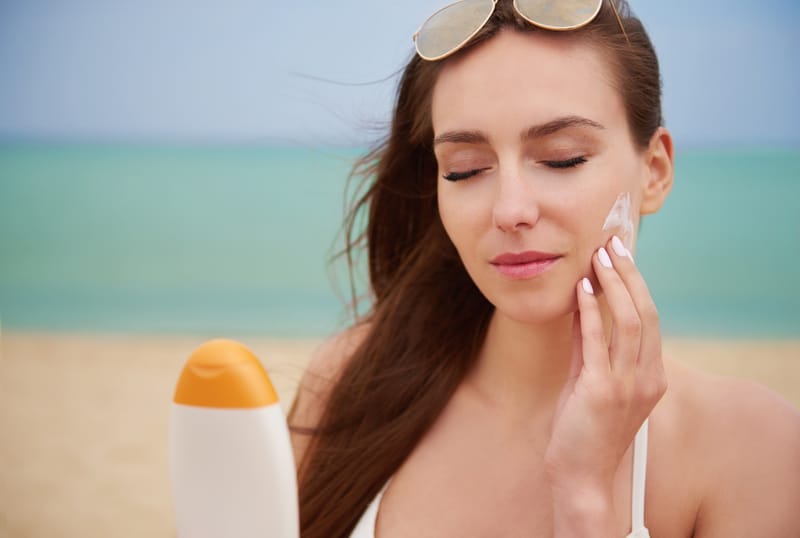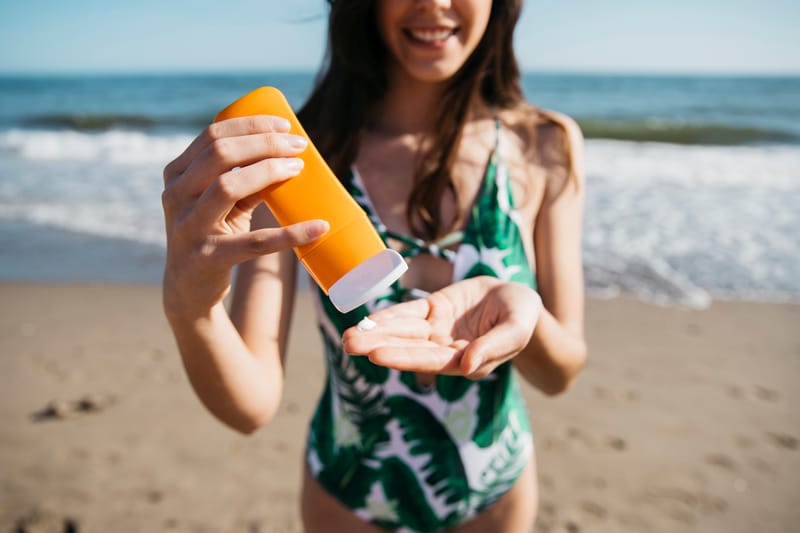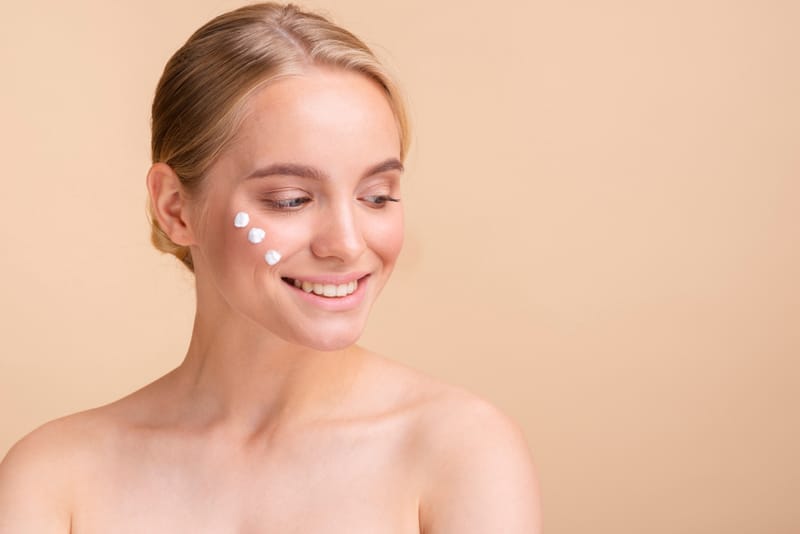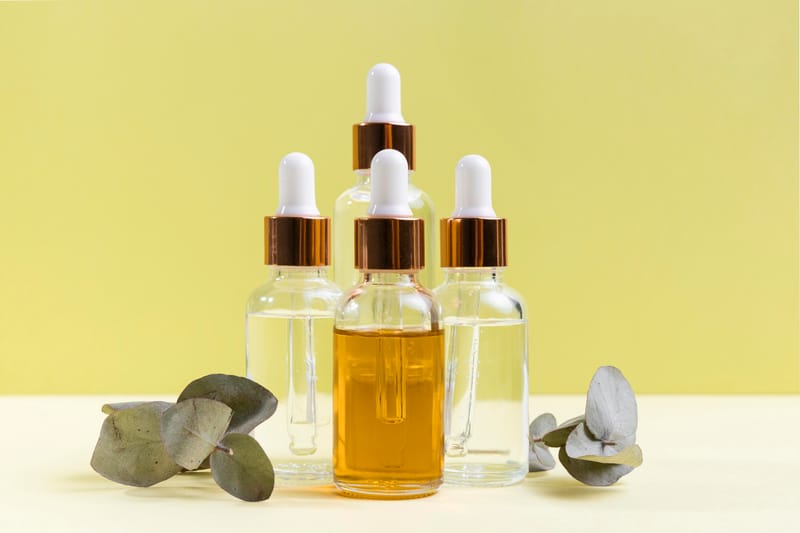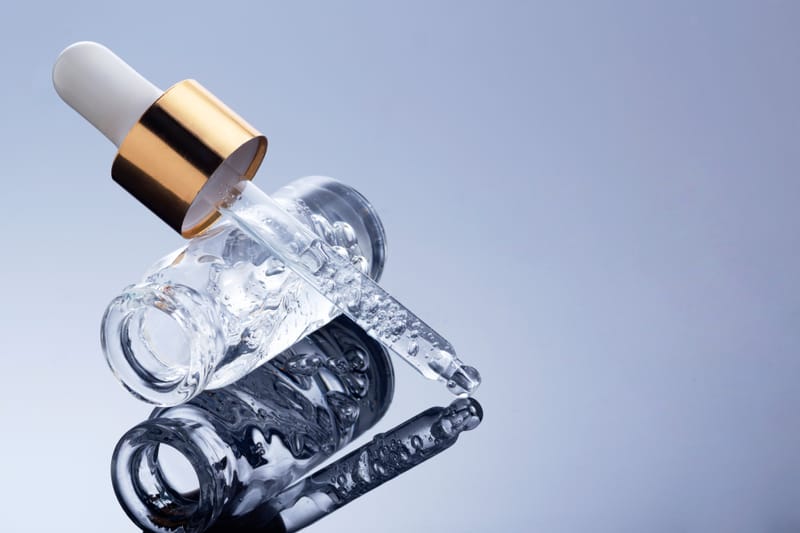This article will delve into the reasons why daily sunscreen application is essential, the benefits it provides, and how to choose the right product for your skin type.
Key Takeaways:
Understand the importance of daily sunscreen use to protect against harmful UV rays.
Learn about the long-term benefits of sunscreen, including reduced risk of skin cancer and premature aging.
Discover how to select the right sunscreen for daily use based on skin type and lifestyle.
The Science Behind Sunscreen and UV Exposure
Sunscreen isn't just a summer staple; it's a crucial shield in our defense against the invisible onslaught of ultraviolet (UV) rays. Every day, we are exposed to UV rays from the sun; which are not only present during bright summer days but also during overcast conditions. These rays, while a natural part of sunlight, are the nefarious culprits behind sunburn, premature aging, and an increased skin cancer risk.
The science behind sunscreen is a tale of chemical warfare on a microscopic scale, where specially formulated compounds absorb, scatter, or reflect harmful ultraviolet radiation before it can penetrate the skin.
UV radiation can be divided into two types: UVA and UVB. UVA rays penetrate deep into the skin and are primarily responsible for premature aging, while UVB rays cause sunburn and are directly linked to skin cancer. Sunscreen acts as a shield, absorbing or reflecting these harmful rays and preventing them from causing damage leading to a host of skin troubles that no one wants to invite to their beach party.
Regular use of sunscreen can significantly reduce the cumulative effects of UV exposure, which includes not only sunburn but also the degradation of skin elasticity, the development of fine lines, and changes in pigmentation. By incorporating sunscreen into your daily routine, you're taking a proactive step in maintaining your skin's health and appearance
Understanding the science of UV exposure is key to appreciating the protective power of sunscreen. The sun emits a spectrum of light, but it's the UVA and UVB rays that pose the greatest threat to our skin. UVA rays are the aging rays, penetrating deep into the skin's thickest layer, while UVB rays are the burning rays, primarily affecting the superficial layers of skin. Prolonged exposure to these rays can damage the DNA in our skin cells,
The Long-Term Benefits of Daily Sunscreen Use
Embracing the daily use of sunscreen can be likened to investing in a long-term health and beauty savings account. The benefits extend far beyond the immediate reprieve from sunburn. Consistent application acts as a formidable barrier against the cumulative damage from UVA and UVB rays, which are unrelenting even on cloudy days or during winter months. Over time, this diligent practice pays dividends in the form of reduced signs of aging, such as fine lines, wrinkles, and sunspots, preserving the skin's youthful elasticity and even tone. Moreover, daily sunscreen use has been shown to decrease the risk of developing squamous cell carcinoma by about 40% and melanoma by 50%. It also helps in preventing the signs of photoaging, which include wrinkles, leathery skin, and hyperpigmentation. By protecting your skin from the onset, you're likely to maintain a more youthful complexion as you age.
The long-term commitment to sunscreen also fosters a healthier overall skin condition. By shielding the skin from the relentless assault of UV rays, sunscreen helps maintain the integrity of the skin barrier, which is essential for hydration and protection against environmental pollutants. This daily ritual can prevent the breakdown of collagen and elastin, proteins that are vital for maintaining the skin's structure and firmness. As a result, individuals who make sunscreen a non-negotiable part of their daily routine often enjoy a more radiant, resilient complexion well into their later years, proving that the best skincare is a proactive and preventative approach.
Moreover, sunscreen can also prevent the exacerbation of skin conditions such as rosacea and melasma, which can be triggered or worsened by sun exposure. For individuals with sensitive skin or conditions like these, daily sunscreen use is not just a recommendation; it's a necessity for managing their skin's health.
Choosing the Right Sunscreen for Everyday Use
When it comes to selecting a sunscreen for daily use, there are several factors to consider. The sunscreen should have a Sun Protection Factor (SPF) of at least 30, which blocks 97% of UVB rays. It's also important to choose a broad-spectrum sunscreen, which provides protection against both UVA and UVB rays.
Selecting the ideal sunscreen for everyday use is a crucial step in your skincare regimen, akin to finding the perfect pair of shoes for a marathon. It's not just about protection; it's about comfort and compatibility with your lifestyle. With the vast array of options available, it's essential to consider factors such as your skin type, the spectrum of coverage, and the formulation. Whether you have dry, oily, or sensitive skin, there's a sunscreen that fits your needs, offering hydration without causing breakouts or irritation. Broad-spectrum labels are your best bet, as they guard against both UVA and UVB rays, ensuring comprehensive defense against potential skin damage. For those with sensitive skin, mineral sunscreens containing zinc oxide or titanium dioxide are often recommended as they are less likely to cause irritation.
Additionally, consider the formulation of the sunscreen. If you have oily skin, look for a lightweight, non-comedogenic product that won't clog pores. For dry skin, a moisturizing sunscreen might be the best option. And for those who wear makeup, there are sunscreens specifically designed to work well under cosmetics.
Moreover, the texture and application of sunscreen play a significant role in its daily use. If you dread the thought of a greasy, heavy cream, you might opt for a lightweight, matte-finish formula or a convenient spray-on type. For those who wear makeup, there are sunscreens that double as primers, smoothing the skin for foundation application. And let's not forget about the active individuals; water-resistant sunscreens are designed to stay put during sweaty workouts or dips in the pool. The right sunscreen feels almost invisible on the skin but acts as an impenetrable shield, seamlessly integrating into your daily routine and encouraging consistent use.
The Role of Sunscreen in Preventing Skin Cancer
Skin cancer is the most common form of cancer in the United States, and its primary cause is exposure to UV radiation. Daily sunscreen application is a simple yet effective way to reduce your risk. By forming a protective barrier on the skin's surface, sunscreen minimizes DNA damage that can lead to skin cancer. It's a preventative measure that takes minimal effort but can have a significant impact on your long-term health.
The sun's rays, while life-giving, can also be life-threatening. Sunscreen is not just a cosmetic accessory; it's a powerful ally in the fight against skin cancer. By filtering out harmful ultraviolet (UV) radiation, sunscreens play a pivotal role in shielding our skin cells from damage that can lead to mutations and the development of cancerous cells. Regular application of sunscreen with a high SPF can significantly reduce the risk of developing melanoma and non-melanoma skin cancers, making it an essential tool in our daily health arsenal.
Beyond the immediate redness and pain of sunburn, UV exposure accumulates over time, leading to photoaging and potentially cancerous changes in the skin. Sunscreen acts as a daily defensive layer, not only preventing the short-term effects of sunburn but also offering long-term protection against the cumulative damage that can lead to skin cancer. It's a simple step in our daily routines that carries profound implications for our health, reinforcing the importance of making sunscreen a non-negotiable part of our everyday lives.
In addition to using sunscreen, it's also important to perform regular skin checks and be aware of any changes in moles or new growths. Early detection is key in the successful treatment of skin cancer, and when combined with daily sunscreen use, you're taking a comprehensive approach to skin cancer prevention.
The Impact of Sunscreen on Aging Skin
Sunscreen is the unsung hero in the quest for youthful, radiant skin. It's the invisible shield that not only guards against the harshness of UV rays but also significantly slows down the clock on aging skin. Daily use of sunscreen can fend off the telltale signs of aging such as wrinkles, fine lines, and age spots. UVA rays, in particular, can lead to the breakdown of collagen and elastin, which are essential for maintaining the skin's structure, elasticity and helps keep the skin plump and resilient. Daily sunscreen use helps to preserve these vital proteins, keeping your skin firm and reducing the formation of wrinkles and fine lines.
The UV filters in sunscreen work tirelessly to protect the delicate structure of the skin, preserving its elasticity and firmness, which are often the first casualties in the aging process.
The cumulative effect of sun exposure is one of the primary contributors to the visible aging of the skin, a process known as photoaging. By consistently incorporating sunscreen into your skincare routine, you're investing in a proactive approach to maintain a youthful complexion. In essence, sunscreen is not just a protective barrier; it's a daily dose of anti-aging treatment that keeps your skin looking as timeless as possible.
Furthermore, sunscreen can help prevent age spots and uneven skin tone, which are often the result of prolonged sun exposure. By consistently protecting your skin from ultraviolet light, you're likely to enjoy a more even complexion and a reduction in the signs of aging.
Sunscreen for Different Skin Types and Conditions
Sunscreen isn't just a summer staple; it's a crucial ally in your daily skincare arsenal, no matter the season. With the myriad of types of sunscreen options available, choosing the right one can feel like navigating a maze blindfolded.
But fear not! Whether you have sensitive skin that reddens at the mere thought of UV rays, or an oily complexion that shines brighter than the midday sun, there's a sunscreen out there with your name on it. Let's dive into the world of sunscreens tailored for different skin types and conditions, ensuring your skin stays protected and happy all year round.
It's a common misconception that only those with fair skin need to wear sunscreen daily. The truth is, regardless of your skin tone, UV rays can cause harm. For those with darker skin, while melanin does provide some natural protection, it's not enough to prevent the long-term effects of sun exposure. Additionally, sunscreen can help prevent hyperpigmentation, which can be more pronounced in darker skin tones.
Sunscreen for Oily Skin
If you have oily skin, you might be hesitant to apply sunscreen, fearing it will exacerbate oiliness or cause breakouts. However, skipping sunscreen is not an option. Look for formulas that are oil-free and non-comedogenic, meaning they won't clog pores. Gel-based sunscreens or those with a matte finish can help control shine throughout the day while providing the necessary protection.
Products containing ingredients like silica or isododecane can absorb excess oil, giving your skin a smoother appearance. Additionally, opting for a sunscreen with added benefits, such as niacinamide, can help regulate oil production and improve skin texture.
Sunscreen for Dry Skin
Dry skin requires a sunscreen that does more than just protect from the sun—it needs to moisturize as well. Cream-based sunscreens with hydrating ingredients like hyaluronic acid or glycerin can provide a double-duty function. These ingredients help to lock in moisture, keeping the skin hydrated and preventing flakiness or irritation.
Avoid sunscreens with high alcohol content, as they can further dry out the skin. Instead, choose products with emollients and occlusives to nourish and protect the skin barrier.
Sunscreen for Sensitive Skin
Sensitive skin can react negatively to certain chemicals and fragrances in sunscreen. Mineral sunscreens, also known as physical sunscreens, containing zinc oxide or titanium dioxide, are typically well-tolerated by sensitive skin types. These ingredients sit on top of the skin, forming a barrier against UV rays, and are less likely to cause irritation.
It's also advisable to look for sunscreens that are fragrance-free and hypoallergenic, minimizing the risk of allergic reactions or skin sensitivities.
Sunscreen for Acne-Prone Skin
For those with acne-prone skin, the fear of triggering breakouts is a common concern when applying sunscreen. The key is to find lightweight, non-comedogenic formulas that won't clog pores. Ingredients like salicylic acid or zinc can be beneficial, as they have anti-inflammatory properties that can help manage acne.
Additionally, opting for a sunscreen that's free of oils and fragrances can reduce the likelihood of acne flare-ups. Remember to cleanse your skin thoroughly at the end of the day to remove any sunscreen residue that could potentially cause blemishes.
Sunscreen for Aging Skin
Aging skin benefits from sunscreens that offer more than just UV protection. Look for products with added antioxidants like vitamin C or E, which can combat free radical damage and promote collagen production. These ingredients can help reduce the appearance of fine lines and wrinkles, providing an anti-aging boost.
Moreover, sunscreens with a higher SPF can offer better protection for aging skin, which may be more susceptible to sun damage due to a thinner skin barrier.
Sunscreen for Darker Skin Tones
While darker complexions have some natural protection against UV radiation, sunscreen is still essential. Hyperpigmentation can be a concern for those with darker skin, and sun exposure can exacerbate these issues. A broad-spectrum sunscreen can help prevent dark spots and even out skin tone.
It's also important to find a sunscreen that doesn't leave a white cast, which can be a common issue with mineral sunscreens. Newer formulations are designed to blend seamlessly into the skin, regardless of skin tone.
Sunscreen for Children
Children's skin is delicate and requires special care when it comes to sun and proper protection. Sunscreens designed for kids are typically formulated to be gentler and less irritating. Look for broad-spectrum, water-resistant formulas that can withstand active play and frequent swimming.
Mineral sunscreens are often recommended for children because they are less likely to cause skin irritation. Always apply sunscreen generously on all sun exposed areas and reapply every two hours, or immediately after swimming or sweating.
Sunscreen for Outdoor Activities
When engaging in outdoor activities, your sunscreen needs to be both protective and resilient. Water-resistant sunscreens are a must for swimmers or those who sweat heavily. These formulas are designed to stay on the skin longer, even when wet, but it's still important to reapply every two hours or after drying off with a towel.
For high-altitude activities like skiing or hiking, a higher SPF is recommended due to the increased UV exposure at elevation. Lip balm with SPF is also essential to protect the sensitive skin on your lips.
For individuals with skin conditions like acne or eczema, choosing the right sunscreen is crucial. Look for formulas that are fragrance-free and non-irritating to avoid exacerbating these conditions. There are many sunscreens on the market specifically designed for sensitive skin, so there's no need to compromise on sun protection.
The Importance of Reapplying Sunscreen Throughout the Day
When it comes to protecting your skin from the sun's harmful rays, sunscreen is your first line of defense. However, slathering on a layer in the morning before you head out for the day isn't enough. The importance of reapplying sunscreen throughout the day cannot be overstated, and here's why.
Sunscreen acts as a shield against the ultraviolet (UV) radiation that can cause skin damage, premature aging, and increase the risk for skin cancer. But as the day goes on, the effectiveness of that protective barrier diminishes. Factors such as sweating, swimming, and even just the passage of time can degrade sunscreen, leaving your skin vulnerable to UV exposure.
Moreover, the sun's position and intensity change throughout the day, which can affect how much UV radiation reaches your skin. For instance, UV rays are strongest between 10 a.m. and 4 p.m., so if you're outdoors during these hours, reapplying sunscreen is crucial. By maintaining a fresh layer of sunscreen, you ensure continuous protection and significantly reduce the risk of sun damage. It's a simple step that can have a profound impact on your skin's health both now and in the future.
Carrying a travel-sized bottle of sunscreen or using cosmetic products with SPF can make reapplication more convenient. Remember, the best sunscreen is the one you'll use consistently, so finding a product that fits seamlessly into your lifestyle is key.
Sunscreen and Vitamin D: Finding the Balance
Sunscreen is essential for protecting our skin from harmful UV rays, but it's also important to consider its impact on Vitamin D synthesis. Vitamin D, known as the "sunshine vitamin," is crucial for bone health, immune function, and has been linked to mood regulation. Our bodies naturally produce Vitamin D when our skin is exposed to sunlight, specifically UVB rays. However, sunscreen, which is designed to block these rays, can potentially reduce the body's ability to produce this vital nutrient
The conundrum that arises is finding the balance between safeguarding our skin and ensuring we receive enough Vitamin D. Health experts agree that while sunscreen does reduce the skin's production of Vitamin D, the risks of UV exposure – including skin cancer and premature aging – far outweigh the potential decrease in Vitamin D levels. It's also worth noting that sunscreen is not a complete block; some UV rays still penetrate, allowing for Vitamin D production, especially if sunscreen is not applied thoroughly or frequently enough.
To strike a balance, it's recommended to get short periods of sun exposure without sunscreen, such as 10-15 minutes a few times a week, depending on the individual's skin type and UV index in their area. This can help maintain adequate Vitamin D levels without significantly increasing the risk of skin damage. After this brief period, applying a broad-spectrum sunscreen with an SPF of 30 or higher is crucial to protect the skin from prolonged exposure.
Additionally, Vitamin D can be sourced from dietary supplements and foods such as fatty fish, fortified dairy products, and eggs. This alternative intake can compensate for any potential deficiencies due to diligent sunscreen use. By combining sun protection strategies with mindful dietary choices, it's possible to enjoy the benefits of the sun while minimizing the risks, ensuring both healthy skin and adequate Vitamin D levels.
Summary
In conclusion, keeping out of direct sunlight as much as possible and wearing sunscreen every day is a crucial step in protecting your skin from harmful UV rays, reducing the risk of skin cancer, and preventing premature aging. By choosing the right sunscreen for your skin type and making it a part of your daily routine, you can maintain healthy, youthful-looking skin for years to come. Remember to reapply sunscreen throughout the day and balance sun protection with adequate vitamin D intake for overall health and well-being.
FAQ Section
Q: Can I skip sunscreen if it's not sunny outside? A: No, UV rays can penetrate clouds and even glass, so it's important to wear sunscreen every day, regardless of the weather or if you're indoors.
Q: How much sunscreen should I apply? A: For the face, a nickel-sized dollop is recommended. For the body, about one ounce (enough to fill a shot glass) should be used to cover all exposed areas.
Q: Does sunscreen expire? A: Yes, sunscreen does have an expiration date, and its effectiveness can diminish over time. Check the expiration date on the bottle and replace it as needed to ensure optimal protection.



